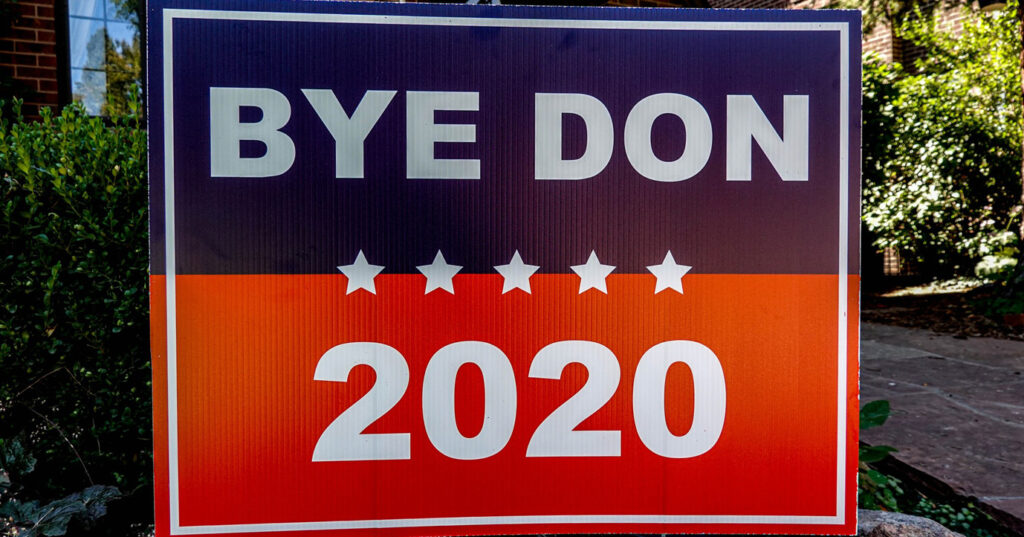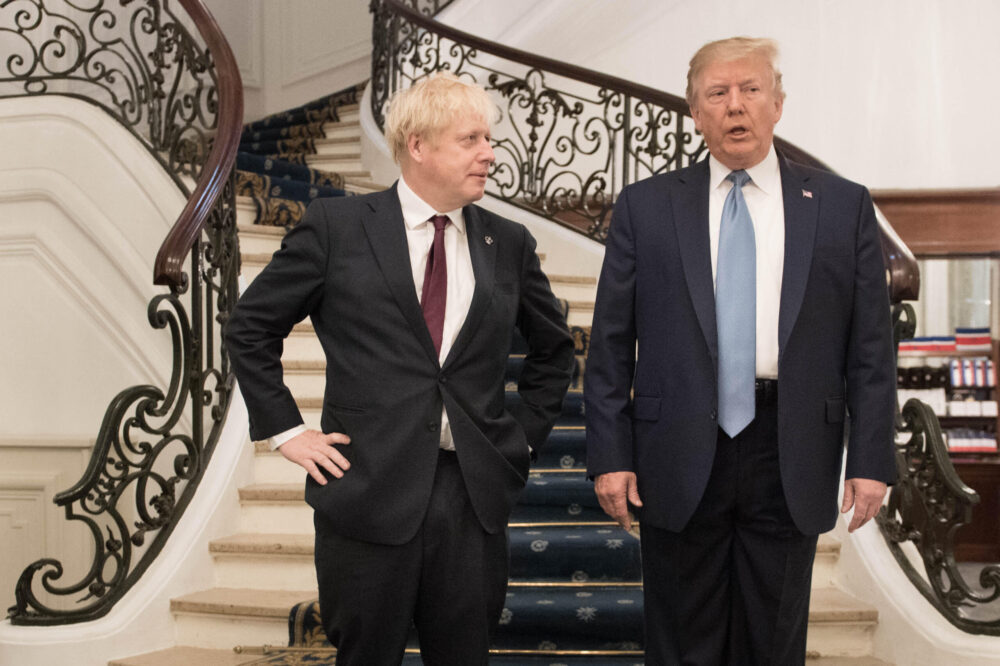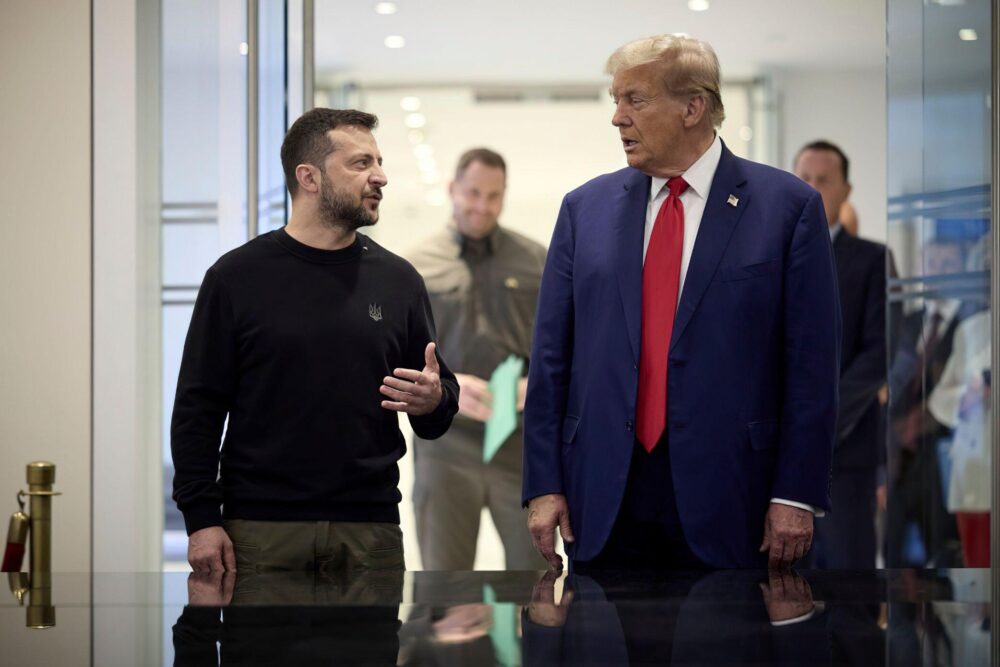
The Coronavirus has changed the world, at least for the time being. But how much has it changed politics? It would take a brave soul to make any kind of projection about the long-term effects of the times we are living through. But my latest polling in the US, collected in my new report The Home Stretch: Campaigning In The Age Of Coronavirus, suggests that the biggest political effect of the current crisis might not be to change people’s minds, but to make them feel more strongly about what they think already.
In the red corner, we have Donald Trump’s 2016 voters. They have remained loyal throughout his presidency, and I found nine in ten of them approving his performance to date, most of them doing so strongly. Almost as many say he has been at least as good a president as they anticipated, with more than half of them saying he had surpassed their expectations.
They rate him highly on all policy areas, especially the economy, national security, immigration and (despite the impression you might get from Twitter) America’s standing in the world. They overwhelmingly saw his impeachment as part of a political campaign against him, rather than a serious judicial process in which he had a case to answer. Asked in my poll to choose from a wide range of positive and negative descriptions, their most frequent selections were “strong,” “up to the job,” “determined,” “effective” and, most popular of all, “leader.”
Nor had their faith been seriously shaken by recent events. Several of his voters in our focus groups in Michigan and Florida (conducted online, so as not to put anyone at risk) admitted that his handling of the crisis left a lot to be desired. This was particularly true of his sometimes rambling performance at daily press briefings at which, after serious points from scientists and doctors he would “go off on a tangent about how rich he is and how he doesn’t need a paycheck. It’s not what we really need to hear right now.”
But these supporters also argued that even if the crisis did not exactly show Trump in his best light, he was still the man for the job. He might be self-indulgent and undiplomatic, they say, or even “missing the compassion gene” altogether, but we knew that before we voted for him. The crisis had not been of his making, and what mattered was getting the country back on its feet once the emergency was over: “Who do you want there to rebuild the country? To me, that’s going to be his greatest opportunity to shine.”
Meanwhile in the purple corner, if you will, we have Trump’s less fervent 2016 voters, including those who had previously supported Barack Obama or had backed Trump mainly to stop Hillary Clinton. Though still largely positive, they gave lower approval ratings than Trump voters as a whole, and less generous marks on all policy issues.
It was also clear in our focus group discussions that many had begun to tire of the Donald Trump show. Though they had seen his antics as a price worth paying for the change they expected him to bring about, they were harder to take in the absence, as they saw it, of any real improvement in their own circumstances. “Calling people names and throwing out insults gets old after a while,” as one told us, “especially if the economy is not good.” Though he was supposed to have drained the Washington swamp and surrounded himself with experts, “everyone except his daughter has quit or got fired. It’s always their fault, never on him.”
For these people, Trump’s handling of the Coronavirus was part of this pattern. “We had two and a half months to prepare,” complained one. “Instead we were told it was a hoax and no-one took it seriously, and now we have no supplies.” Even now there seemed to be an absence of leadership: “Every day they hand the mic to a different person. You don’t know who’s in charge, who is the adult in the room.” Talk of the “Chinese virus” hardly helped: “It’s Trump being Trump but it’s unnecessary. His mouth gets him in trouble too often and this is one of those moments.”
In the blue corner, to stretch the metaphor beyond endurance, are the voters who never liked Trump in the first place, and who are predictably scathing about his performance in recent weeks. Rationally, they think the crisis should finally expose Trump as the terrible president they believe him to be: “His initial response was so laissez-faire, it’s coming back and biting him in the ass,” as one neatly summarized. “Seeing how he’s handling this, it would be crazy to re-elect him.”
But in their hearts, many are not so sure it will turn out this way. This is partly because they think people may be less inclined to remove a leader during such a time, but also because they themselves are struggling to summon the enthusiasm to get behind Joe Biden, effectively the Democrats’ nominee-designate since Bernie Sanders suspended his campaign last week.
A number of Michigan primary voters told us he had been only their third choice after younger and more exciting candidates dropped out and the party establishment re-asserted itself, as it had done for Clinton four years earlier. Though he did not inspire anything like the animosity of his predecessor, he felt every bit as much of a compromise – albeit one they were prepared to make. This was especially true for African-American voters we spoke to, who could not bring themselves to vote for Clinton but were resolved to do what it took to deny Trump a second term.
Despite this, few seemed hopeful that it would be their year. Implicit in their reasoning was that if they could not get excited about their candidate, they could hardly expect anyone else to. The poll suggested further grounds for such pessimism – the word most often chosen to describe him in our poll was “elderly,” with several undecided voters in our groups describing him as “not all there.”
Among those who had voted for Sanders in the primary, only seven in ten said they currently intended to turn out and vote for Biden in November. The incongruity was also evident at a national level – though Biden beat Trump comfortably in our poll, when we asked people who they thought would win, Trump came out on top.
Though the election is less than seven months away, in terms of events it remains distant and much could change. The numbers affected by Coronavirus will grow and the economic damage will mount. We can’t tell whether, by November, the emergency will have receded, with the accent on recovery and rebuilding, or if Coronavirus will still be the preeminent fact of the day. In political terms, there is still time for the crisis to turn the tables. But it hasn’t yet.


